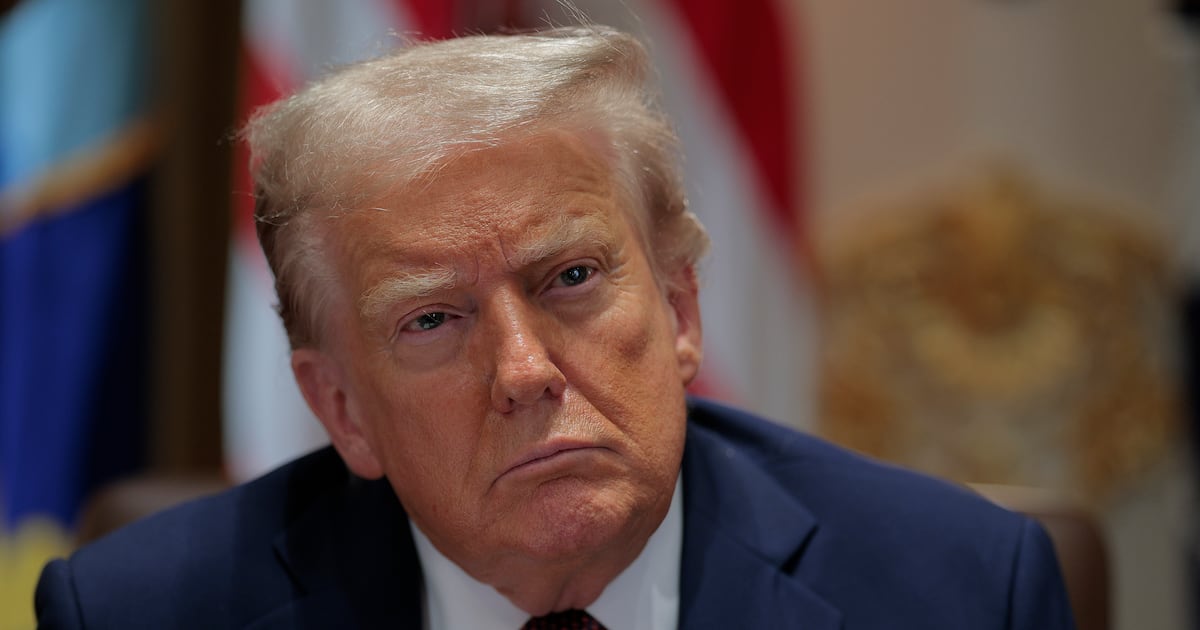World
US Appeals Court Declares Most Trump Tariffs Illegal, Sets Deadline

A ruling by the US Court of Appeals for the Federal Circuit has determined that the majority of tariffs imposed by former President Donald Trump are illegal. This decision significantly undermines Trump’s strategy of employing tariffs as a central element of his international economic policy. The court has permitted these tariffs to remain in effect until October 14, 2025, allowing the Trump administration time to appeal the ruling to the US Supreme Court.
The appeals court’s decision focuses on tariffs classified as “reciprocal,” which were put in place during Trump’s trade war that began in April, as well as additional tariffs targeting China, Canada, and Mexico from February. Notably, the ruling does not impact tariffs established under different legal authorities, such as those on steel and aluminum imports.
Trump’s tariffs have been pivotal in his administration’s efforts to negotiate trade agreements and exert political pressure on various countries. While the tariffs have provided leverage for economic concessions, they have also contributed to increased volatility in financial markets.
The International Emergency Economic Powers Act (IEEPA) has been the legal basis for Trump’s tariff policies. This 1977 law grants the president the authority to respond to “unusual and extraordinary” threats during national emergencies. Historically used for imposing sanctions, Trump has utilized it to justify tariffs, arguing that trade imbalances and declining US manufacturing capabilities pose significant threats to national security.
The US Department of Justice contends that IEEPA empowers the president to regulate imports, including the imposition of tariffs. In April, Trump declared a national emergency, citing a persistent trade deficit as detrimental to US manufacturing and military readiness. He specifically justified the tariffs against China, Canada, and Mexico by alleging insufficient action to prevent the illegal flow of fentanyl into the US, a claim that these countries have denied.
The appeals court ruling emerged from two separate cases: one initiated by five small US businesses and another by twelve states led by Democratic administrations. Both lawsuits argue that the IEEPA does not grant the president the authority to impose tariffs. According to the US Constitution, the power to impose taxes and tariffs is vested in Congress, and any delegation of that authority must be explicit and limited.
In a previous ruling on May 28, 2025, the US Court of International Trade found that Trump’s tariff policies overstepped his authority. Notably, the three-judge panel included a judge appointed by Trump during his first term. Another court in Washington, DC, also ruled against the legality of Trump’s tariffs under IEEPA, prompting the government to appeal that decision.
At least eight lawsuits challenging Trump’s tariff policies are currently underway, including one brought forth by the state of California. As the legal battles continue, the future of these tariffs remains uncertain as they await further judicial review.
-

 Top Stories2 months ago
Top Stories2 months agoTributes Surge for 9-Year-Old Leon Briody After Cancer Battle
-

 Entertainment3 months ago
Entertainment3 months agoAimee Osbourne Joins Family for Emotional Tribute to Ozzy
-

 Politics3 months ago
Politics3 months agoDanny Healy-Rae Considers Complaint After Altercation with Garda
-

 Top Stories3 months ago
Top Stories3 months agoIreland Enjoys Summer Heat as Hurricane Erin Approaches Atlantic
-

 World4 months ago
World4 months agoHawaii Commemorates 80 Years Since Hiroshima Bombing with Ceremony
-

 Top Stories2 months ago
Top Stories2 months agoNewcastle West Woman Patricia Foley Found Safe After Urgent Search
-

 Top Stories4 months ago
Top Stories4 months agoFianna Fáil TDs Urgently Consider Maire Geoghegan-Quinn for Presidency
-

 World4 months ago
World4 months agoGaza Aid Distribution Tragedy: 20 Killed Amid Ongoing Violence
-

 World4 months ago
World4 months agoCouple Convicted of Murdering Two-Year-Old Grandson in Wales
-

 Top Stories3 months ago
Top Stories3 months agoClimbing Errigal: A Must-Do Summer Adventure in Donegal
-

 World4 months ago
World4 months agoAristocrat Constance Marten and Partner Convicted of Infant Murder
-

 Top Stories3 months ago
Top Stories3 months agoHike Donegal’s Errigal Mountain NOW for Unforgettable Summer Views









